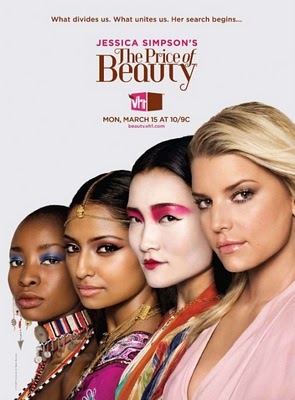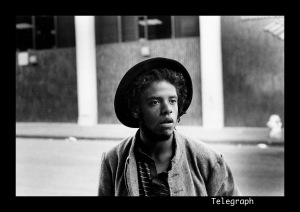There’s been a lot of discussion lately about the release of the documentary preview, “Dark Girls,” directed by Bill Duke and Channsin Berry (which you can view below). Whether people are enraged or awakened by the material, it’s sparked a definite chord in folks across the country. I was even moved to write a poem partly inspired by some of its themes, specifically around Eurocentric beauty standards (see previous post). The preview definitely stirred my emotions and resonated with me as a black woman who has experienced, learned, and/or witnessed this type of self-hatred in my life and community. However, after an earlier phone call with my older sister, where she posed some alternative ways to frame the discussion, I’m reconsidering my initial reactions to the directors’ focus and choice of content.
Put simply, what about the “dark girls” who were raised to love their brown skin, who were confident, and never viewed their skin color as a mistake? What about the “dark girls” raised in households where their parents/ family members praised their intelligence and beauty? What about the darker-skinned women who were ridiculed but say that it didn’t affect their total self-conception? I know some of them. They do exist, and they seem to be all but erased from this documentary preview. This lack of inclusion caused to me wonder about the concerns of documentary filmmaking- the intentional and not-so intentional slant that directors have when conceiving of ideas that they deem compelling or powerful. What would happen if alternative perspectives were included in this preview? How would that complicate this very complex narrative on skin color? How does having two black men direct a documentary about black women’s skin color affect the narrative, if it does at all? These are questions I consider regularly as narrative and documentary filmmaker. When I think of privileging a certain perspective over another, I must consider what that will do to the story I’m trying to tell and how audiences will react to that decision.
I’m in no way lessening the gravity of this skin-color caste system within the black community, and globally. Through out my life, I’ve seen the debilitating ramifications of its existence, and I’ve always been a proponent for trying to break it down and analyze its function as a force of division, pseudo-importance, and over-enforced Eurocentricity. I cannot say that I’ve experienced what the women in this preview have, but I’ve felt the sting in my chest when my friends and family members have. I’ve experienced the incessant pressure from media, classmates, and teen crushes to have long hair, to claim that I was “half Indian,” to embrace “light skin” as if it were some kind of exalted honor. So my intent here is never to devalue the impact of these ingrained ideologies that affect black and brown people across the world, but to question how this preview would function if the total complexity of this issue was explored.
There is a part in the documentary where interviewees talk about black men not seeking out long-term relationships with them because they’re darker skinned. In my experience, I’ve seen some black men seek out women with this as one of the main reasons they’re attracted to the woman; because she has dark skin. Both motivations can be problematic and should be examined, but this is just an alternative consideration. There’s also no discussion of how other elements of self-esteem and socialization affect the way young girls react to these beliefs. My older sister mentioned her friend, who despite having the treasured long hair and light skin, was extremely insecure and unhappy with herself. Her thoughts had less to do with her skin color and more to do with her family influence and emotional health, which can also be applied to dark skinned girls brought up in supportive, loving homes who feel good about themselves.
By leaving out the varied voices of dark-skinned women and black community members, we’re not able to feel any other way but mad, angry, enraged, saddened, and hopefully ready to change this discourse. But there are parts of this narrative that can ignite hope, relief, and maybe even some humor. Again, it all goes back to the directors’ intentions and their “slant,” which is something I’m so fascinated with as a filmmaker. I once took a documentary filmmaking class at Howard University where we discussed the choices made by filmmakers, which renders how their act of “documenting” is interpreted. If the director’s intention was to move people to the point of dialogue and change, hopefully the piece works in that direction, but how would presenting a multifaceted perspective help to enliven, evoke or distill that dialogue?












